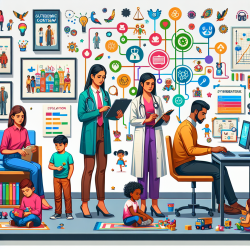Introduction
The COVID-19 pandemic has been a global disruptor, challenging many of our established systems and practices. As professionals dedicated to improving child outcomes, speech-language pathologists can learn from the Kerala Model's response to the pandemic. This blog explores how the Kerala Model's emphasis on decentralized governance and participatory democracy can inform data-driven practices in online therapy.
The Kerala Model: A Brief Overview
Kerala, a state in India, has long been recognized for its exemplary human development indicators despite modest economic growth. The "Kerala Model" is characterized by robust public institutions, decentralized governance, and a strong emphasis on social welfare. During the COVID-19 pandemic, Kerala initially managed to contain the virus effectively, thanks to these foundational elements. However, the state later faced challenges due to adversarial politics and a lack of consensus-based approaches.
Lessons for Speech-Language Pathologists
What can speech-language pathologists learn from the Kerala Model? Here are some key takeaways:
- Decentralization and Local Empowerment: Just as Kerala's decentralized approach empowered local bodies to act swiftly, speech-language pathologists can benefit from empowering local schools and communities in therapy planning and execution.
- Participatory Democracy: Involving families and communities in the therapy process can enhance outcomes. Encouraging active participation ensures that therapy is tailored to the child's unique context and needs.
- Robust Public Institutions: Building strong institutional frameworks within schools and therapy centers can support consistent and effective therapy delivery, even in challenging times.
- Data-Driven Decision Making: Kerala's success was partly due to its reliance on data to guide public health interventions. Similarly, speech-language pathologists should use data to inform therapy strategies and track progress.
Encouraging Further Research
The Kerala Model's experience underscores the importance of continuous learning and adaptation. Speech-language pathologists are encouraged to delve deeper into how decentralized and participatory models can be applied in their practice. By doing so, they can enhance their ability to provide effective online therapy services, particularly in a post-pandemic world.
Conclusion
In conclusion, the Kerala Model offers valuable insights for speech-language pathologists seeking to improve child outcomes through online therapy. By adopting principles of decentralization, participatory democracy, and data-driven decision-making, practitioners can create more resilient and effective therapy frameworks. To explore the original research paper, please follow this link: The Kerala model in the time of COVID19: Rethinking state, society and democracy.










